Annual Professionals' Conference 2026: Speakers' blogs
Some of our speakers have written blogs for us to tell you a little bit more about what their session is about, why the subject is important to them and who they think will find their session useful.

Reena Anand
Neurodiversity Coach & Consultant
-
What is your talk at the Professionals’ Conference about?
This talk explores how autistic people from global majority backgrounds navigate intersecting experiences of race, culture and neurodivergence – and what neuroinclusive, culturally responsive practice actually looks like when we move beyond “hard to reach” narratives.
Why is that subject important to you?
As an AuDHD South Asian parent, I've lived the reality of how racism and ableism compound one another in systems that weren’t designed with us in mind. I want practitioners to understand that inclusion isn’t one-size-fits-all – it requires us to see and respond to the whole person.
Who do you think would find your talk useful?
Anyone working with autistic people who wants to build genuinely inclusive practice – whether you’re in education, healthcare, social care or the workplace. This session is especially relevant if you’re reflecting on why certain communities aren’t accessing your services or if you’re ready to move beyond awareness to meaningful change.
What is one thing you would like more people to understand about autism?
Autism doesn’t exist in isolation from our other identities. When we ignore race, culture, class and other lived realities, we create systems that only work for some autistic people – and that's not inclusion, it’s gatekeeping.
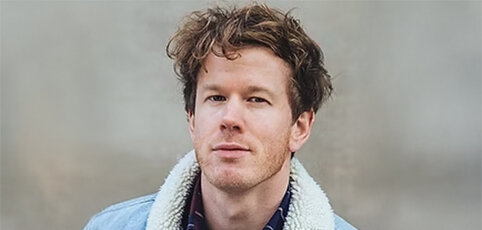
Professor Duncan Astle
Professor of Neuroinformatics, University of Cambridge
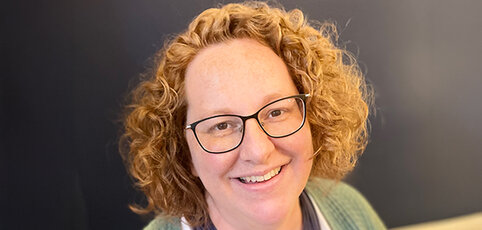
Professor Sue Fletcher-Watson
Professor of Developmental Psychology, University of Edinburgh
-
What is your talk at the Professionals’ Conference about?
We will be talking about how important it is for research and practice not to be bound by who does or doesn’t have a particular diagnosis. We’ll explain how a diagnosis-centred way of thinking has held us back and how new research methods and principles can help us move forward.
Why is that subject important to you?
Our understanding of autism has been held back by traditional theories, preventing us from providing services that can meet the needs of real autistic people. We now have new ways of understanding neurodiversity and new research methods, and sharing these is an essential step towards better healthcare and education.
Who do you think would find your talks useful?
Anyone who finds themselves using or delivering services that aren’t only for autistic people. For example, if you teach in an inclusive classroom, run an eating disorders or anxiety clinic or work as a GP, this session could be for you. If you want to know more about the neurodiversity paradigm or transdiagnostic research, this session will help answer your questions.
What is one thing you would like more people to understand about autism?
Doing research and providing services exclusively for people who have a clinical autism diagnosis is a big problem. It means we miss loads of autistic people who aren’t diagnosed. Even if you do have a diagnosis, we often focus more on stereotypes of autism than on your specific needs. That has to change.
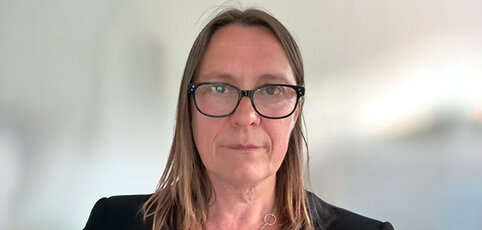
Lisa Carey-Woolls
Trainer, Consultant & Teacher
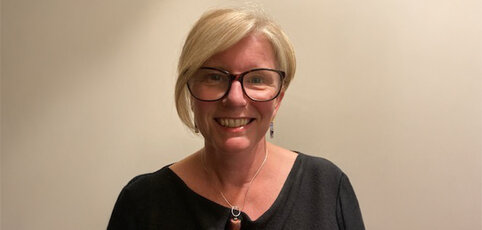
Phil Wroe
Trainer, Consultant & Specialist Teacher
-
What is your talk at the Professionals’ Conference about?
Understanding why neurodivergent learners become dysregulated in mainstream settings and how to make the mainstream classroom an environment where all learners can be successful. Giving teachers the confidence to interpret the actions of neurodivergent learners, and how to respond appropriately.
Why is that subject important to you?
There are so many children not succeeding in mainstream settings or currently out of school. With the right support many of those children could flourish in these settings, but teachers need the understanding and strategies to be able to achieve this.
Who do you think would find your talks useful?
Teachers, speech and language therapists, teaching assistants and anyone working with neurodivergent learners.
What is one thing you would like more people to understand about autism?
It is the impact of the environment that dictates whether or not the person can succeed, not the neurodivergence itself.
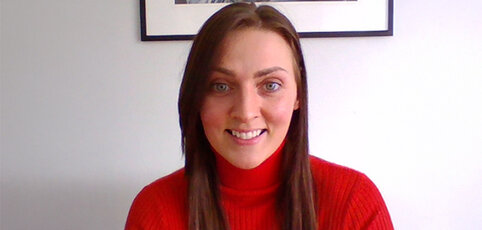
Keri Fisher
Behaviour and Training Practitioner in Low Arousal Approaches, Studio III
-
What is your talk at the Professionals’ Conference about?
My talk focuses on self-injury behaviour in children and young people, specifically challenging common assumptions and providing an understanding around some of the causes of self-injury.
Why is that subject important to you?
It’s important because self-injury can often be difficult to navigate a person through and is often a misunderstood behaviour. We believe promoting supportive, low-arousal approaches can significantly improve the quality of life for the young people involved and their support systems.
Who do you think would find your talks useful?
The session will be most useful for professionals, educators and family members supporting autistic children and young people who present with self-injurious behaviour or other behaviours of distress.
What is one thing you would like more people to understand about autism?
One thing I wish more people understood about autism is that it’s not about being ‘broken’ or ‘less than’ – it’s about having a brain that’s wired differently. Autistic people experience and process the world in unique ways, which can come with both challenges and strengths. From a neurological point of view, autism isn’t a flaw to fix – it’s a natural variation in how human brains work. When we understand and respect those differences, we make the world a more inclusive and supportive place for everyone.
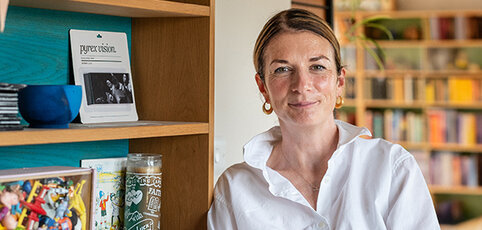
Eliza Fricker
Author, Illustrator, Advocate & Consultant for PDA, autism and learning
-
What is your talk at the Professionals’ Conference about?
My talk is based on my book Can’t not won’t about how children can find school a difficult environment and the impact on families trying to access suitable support and understanding.
Why is that subject important to you?
This is based on my lived experience as a mother supporting my child. I saw the trauma that impacted my daughter and ultimately led to a breakdown. I want other families’ experiences to be better than ours, and I want to see less traumatised autistic children.
Who do you think would find your talks useful?
I hope it helps families feel less isolated through their experiences and asks professionals to meet these complex situations with more empathy and person-centred approaches to meet the aims of the family.
What is one thing you would like more people to understand about autism?
That many of us need space and support to create lives that work for us, rather than fitting or adhering to societal expectations. To understand the impact of trying to fit by masking and that this is not a sustainable way to live, as eventually there will be fallout from this. Thriving comes from finding our own ways to learn, live and work.
Jamie + Lion
Developer, writer and public speaker
-
What is your talk at the Professionals’ Conference about?
My talk is about how I choose and use tech to remove barriers in my life.
Why is that subject important to you?
Technology is changing quickly; it brings new barriers and new opportunities… it’s exciting and having a huge impact on my life.
I want to share all the stories of what’s been working, what’s gone wrong and what I look for when choosing tools.
Who do you think would find your talks useful?
The talk has something for everyone – from stories and tech for day-to-day barriers around independent living through to advice for choosing and using tech within schools and workplaces.
What is one thing you would like more people to understand about autism?
It’s all about power. Barriers lead to exclusion… but arise from assumptions. We embed the assumptions we make into the things we design, build and believe. The more power someone has, the more harm their assumptions can cause. It’s not about autism at all. It’s about a power dynamic between a majority and a minority.
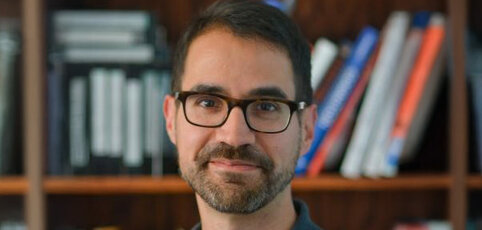
Professor Vikram Jaswal
Professor of Psychology, University of Virginia
-
What is your talk at the Professionals’ Conference about?
In this talk, I’ll describe some of the research about communication we’ve been doing with non-speaking autistic people.
Why is that subject important to you?
About 30% of autistic people can’t use speech to express themselves, and most are never provided an effective alternative, severely limiting their educational, social and community opportunities. Research is urgently needed on how to support non-speaking people to access effective alternatives to speech.
Who do you think would find your talks useful?
People who care for, support or teach non-speaking people.
What is one thing you would like more people to understand about autism?
Not being able to speak is not the same as not having anything to say.

Kerry Murphy
Autistic & ADHD early childhood specialist, Diverse Pathways for Early Childhood
-
What is your talk at the Professionals’ Conference about?
My talk is about neurodiversity affirming practice in early childhood. Like many people, my original training was underpinned by deficit-based approaches to child development and the ways in which children play. Neurodiversity-informed and affirming approaches have enabled me to challenge my own thinking and bias, and to advocate for more humanising and joyful approaches to early education. My talk captures that journey of unlearning and re-learning.
Why is that subject important to you?
This subject is important to me because I believe that all children should have unhurried and joyful childhoods, where their play and development is understood as meaningful. We need to embrace that there are many different developmental pathways we may follow, and each in its own time and space.
Who do you think would find your talks useful?
Anyone invested in understanding neurodiversity informed and affirming practice from an early childhood perspective (from birth to age eight). It is especially useful for those who want to disrupt and dismantle current oppressive systems in education. Early educators, teachers, specialists and parents/carers usually find my training beneficial to apply to their own context.
What is one thing you would like more people to understand about autism?
I would like people to recognise that autistic child development is an equally valid and unique developmental pathway comprising many dynamic strengths, traits, differences and needs, like a constellation. Being autistic does not make a child less valuable.
